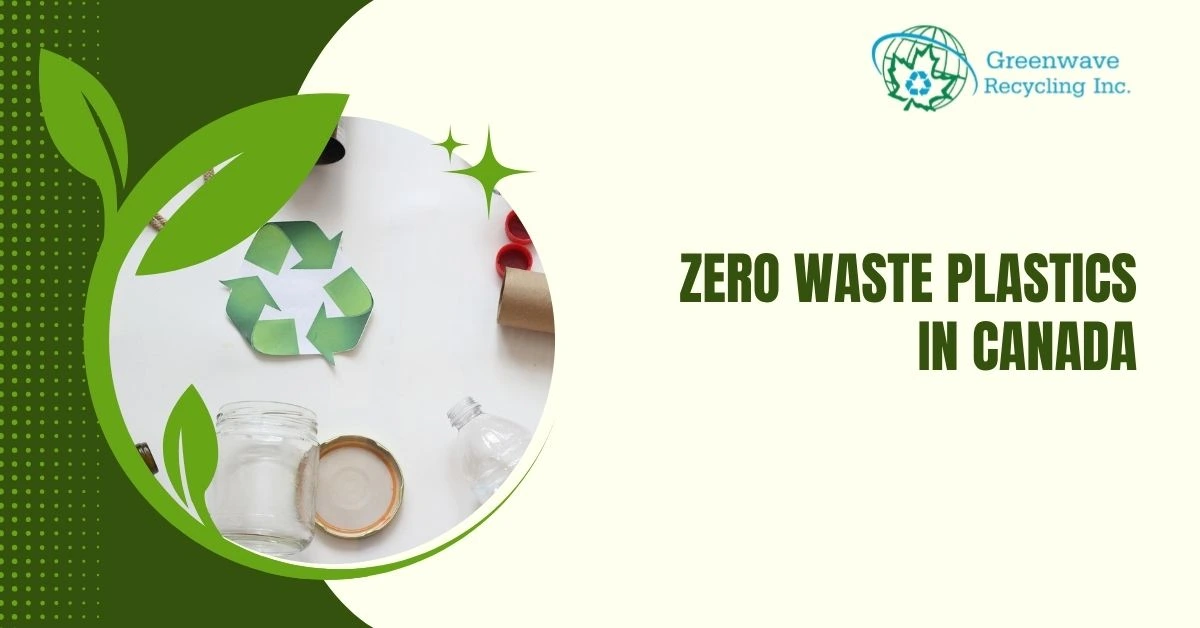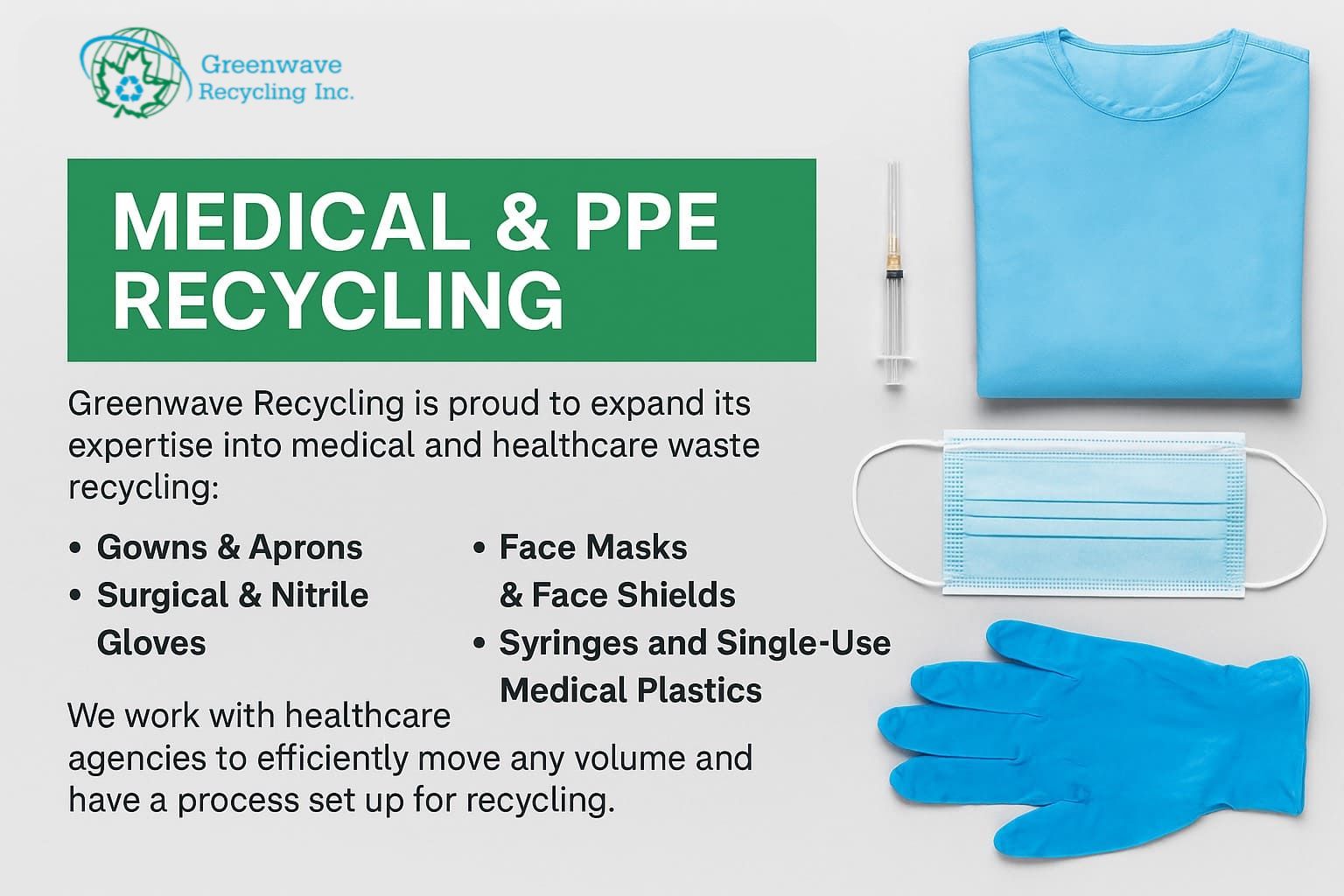The COVID-19 pandemic reshaped public health systems across the globe. In Canada, the mass adoption…

Plastic waste is a growing environmental concern worldwide, and Canada is no exception. With the increasing production and consumption of plastic products, finding sustainable ways to manage and recycle plastics is critical. Greenwave Recycling is leading the charge in Canada with their innovative zero waste plastics program, promoting environmentally responsible plastic recycling and helping communities reduce landfill waste.
What is Zero Waste Plastics Recycling?
Zero waste plastics recycling refers to a comprehensive approach where plastic materials are collected, processed, and reused or recycled to the fullest extent possible, minimizing or eliminating plastic waste going to landfills or incineration. This program focuses on diverting plastic waste from landfills by using advanced recycling technologies and community-driven initiatives that encourage responsible plastic use and disposal.
Their program includes:
- Collection and sorting of various plastic types
- Processing plastics into reusable raw materials
- Promoting circular economy principles through reuse and remanufacturing
- Educating communities about plastic waste reduction strategies
By implementing zero waste principles, this initiative contributes to a cleaner environment and helps Canada move toward sustainable waste management goals.
How Advanced Technology is Revolutionizing Plastic Waste Management
The recycling program is at the forefront with innovative technologies that transform how plastics are processed in Canada. Their cutting-edge machinery and techniques not only improve recycling efficiency but also ensure higher quality recycled materials for reuse.
Advanced Sorting and Processing
This advanced sorting technology ensures cleaner plastic streams, improving recycling efficiency and material quality. Automated sorting systems use optical scanners, air jets, and AI to accurately separate different types of plastics, significantly reducing contamination and maximizing recycling rates.
Chemical Recycling Breakthroughs
In addition to conventional mechanical recycling, the program is advancing chemical recycling techniques. These processes break down plastics into their original monomers, allowing for infinite recyclability without loss of quality.
Chemical Recycling Breakthroughs
In addition to conventional mechanical recycling, the program is advancing chemical recycling techniques. These processes break down plastics into their original monomers, allowing for infinite recyclability without loss of quality.
Benefits of These Technologies
- Increased recycling throughput and reduced waste
- Production of high-grade recycled plastic pellets
- Lower energy consumption compared to virgin plastic manufacturing
- Reduced environmental footprint and carbon emissions
By integrating advanced technologies, this program is setting new standards for sustainable plastic management in Canada and beyond.
Greenwave Recycling’s Zero Waste Plastics Program in Canada is fortified by its diverse range of high-quality recycled materials, such as recycled PP Super Sacks—durable, reusable bulk containers made from post-industrial polypropylene, ideal for industries like agriculture, construction, and recycling. These eco-conscious products exemplify Greenwave’s commitment to circular economy principles by reducing plastic waste and offering scalable, cost-effective packaging alternatives for businesses across Canada.
Join the fight against plastic waste—Contact us to explore advanced recycling solutions for your business or community.
Community Impact of Zero Waste Plastics Programs in Canada
Zero waste plastic initiatives are not only about technology—they are about people. This program creates positive social and environmental impacts within Canadian communities.
Empowering Local Participation
Active engagement through awareness campaigns, workshops, and local recycling events educates residents on proper plastic disposal, reducing contamination and increasing recycling success.
Job Creation and Economic Growth
The expansion of zero waste programs creates employment opportunities in the collection, processing, and recycling sectors, boosting local economies.
Cleaner Environments
By diverting plastics from landfills and waterways, these programs improve public health, reduce litter, and protect wildlife habitats.
Collaboration with Businesses and Governments
Partnerships with municipalities and companies help implement large-scale recycling solutions, setting an example for responsible corporate citizenship.
Frequently Asked Questions
Most programs accept a wide range of plastics, including PET (#1), HDPE (#2), PVC (#3), LDPE (#4), PP (#5), PS (#6), and other composite plastics.
Mechanical recycling physically processes plastics into new products, while chemical recycling breaks plastics down to their molecular level to recreate original raw materials.
Zero waste plastic recycling helps reduce landfill overflow, cuts down on harmful emissions, conserves natural resources, and protects ecosystems by keeping plastics out of oceans and wildlife habitats.
Yes, individuals and businesses can participate by properly sorting plastics and using designated collection points.
Yes, it supports a circular economy by turning waste into valuable raw materials, creating jobs, and reducing costs related to waste management.
Conclusion
This innovative zero-waste plastics initiative is a vital part of Canada’s effort to tackle plastic waste through sustainable recycling solutions. By adopting advanced technology, promoting community involvement, and supporting circular economy principles, it helps reduce the environmental footprint of plastics and fosters a healthier planet for future generations. Supporting programs like this is key to building cleaner, greener communities and a more sustainable future for Canada.




